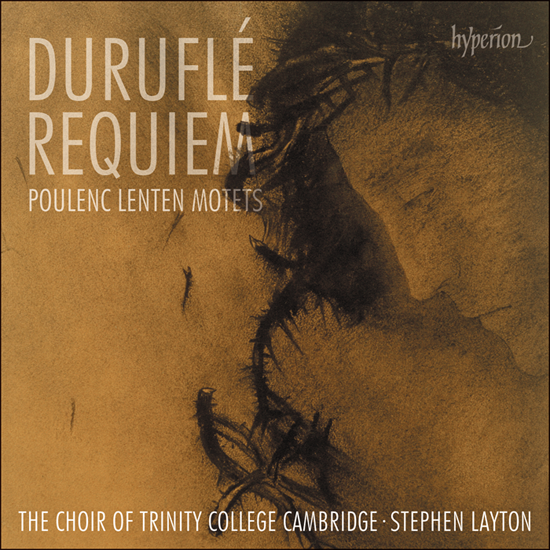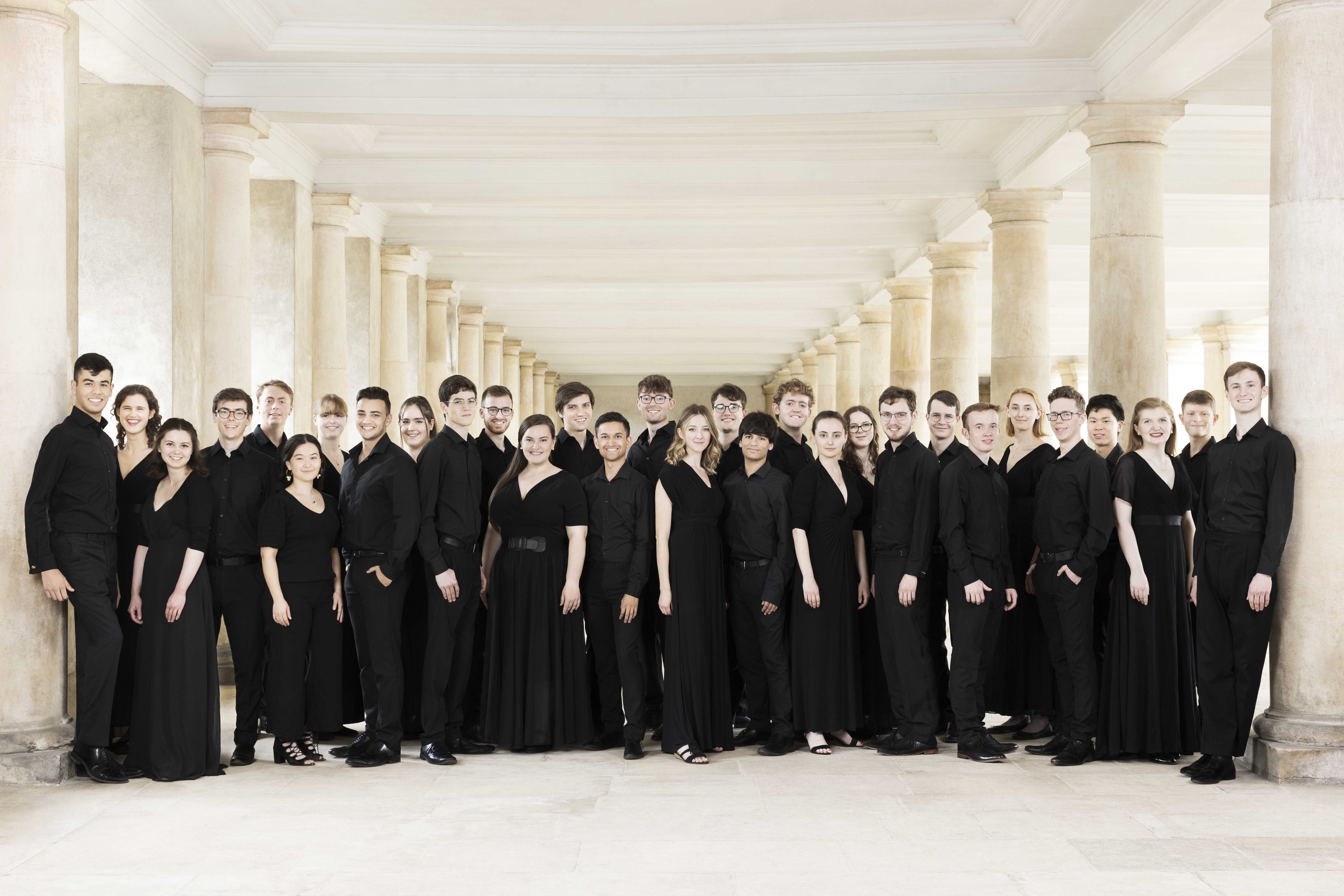Duruflé/Poulenc - Requiem & Motets - BR-Klassik
> See recording details...“Times of trouble have always produced art that strives for order and peace. The Requiem of the French composer Maurice Duruflé, started in 1941 and completed in 1947, is a product of the Second World War which proclaims peace, inner strength, and trust in God.
Considered one of the most significant choral works of modern times, Duruflé’s Requiem is based on the models of Gregorian plainsong and early polyphony. This recording presents both aspects: the modern, bright sound of a young professional choir, and the mystic regions on the threshold of this world and the next. Completing the album are four further crowning achievements of the a capella choral repertoire, the penitential motets of Francis Poulenc.
The recording by the Choir of Trinity College Cambridge, directed by Stephen Layton, conveys the intensity and indeed the strength contained within Duruflé’s music of peace and introspection. Recorded in the Church of Saint Eustache in Paris, a mighty late Gothic-early Renaissance basilica, the choir’s sound emerges from the depths of the space with a soft, tender, golden glow. The ‘Dies Irae’, however, is unleashed by Layton like a rocket strike, carving a swathe of destruction and desolation: the organ swells, the chords roll, and the room properly shakes.
Poulenc’s motets were recorded in the Chapel at Trinity College. The Choir’s sound here is much more direct, but always with a refined elegance of sharply defined and delineated voices, and a lightness and energy of ensemble – English choral hallmarks. Stephen Layton understands exactly how to draw the best out of his young singers. Choir; music: both shine out on this recording.”
Laszlo Molnar

Hyperion Records CDA68436
